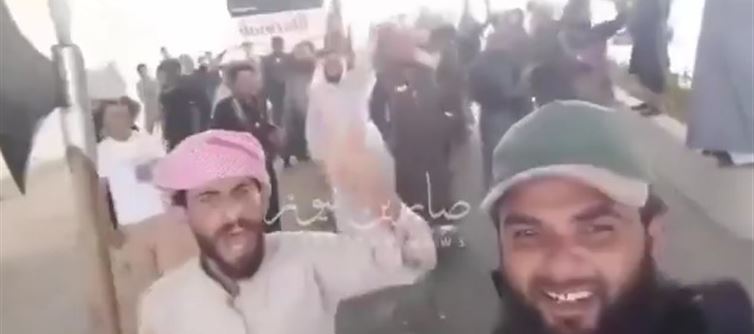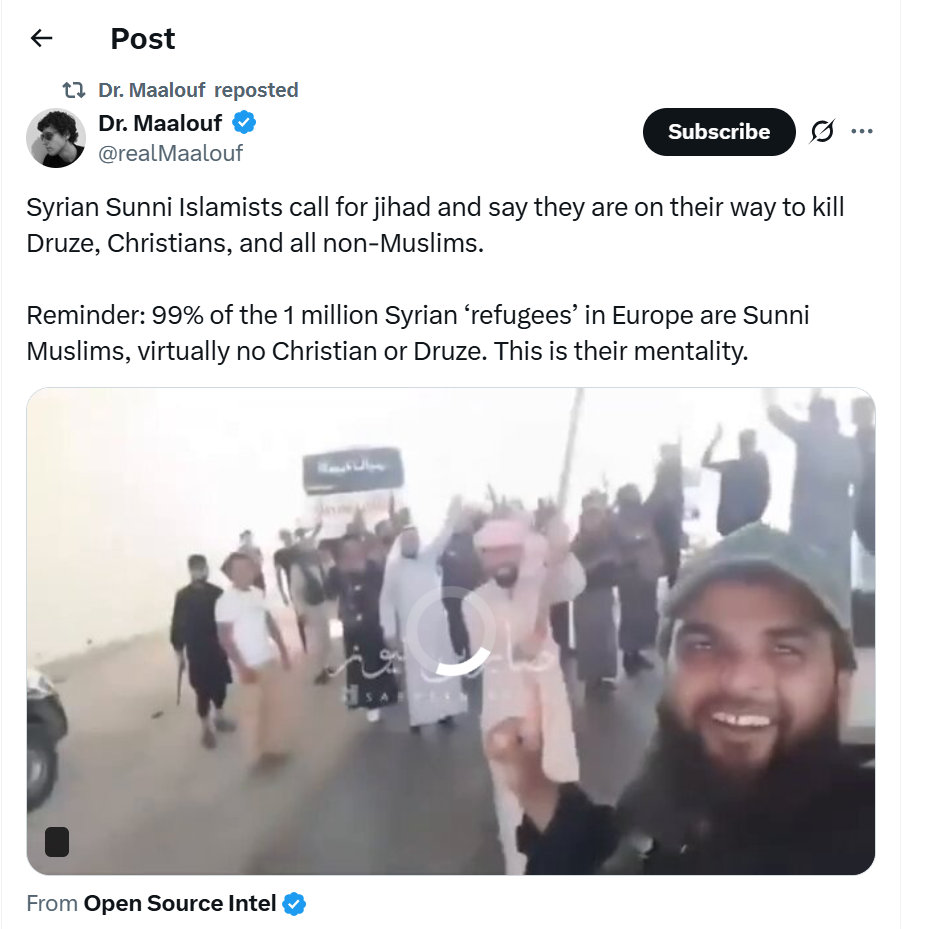
This brutality also brings uncomfortable attention to Europe’s refugee policy over the past decade. During the Syrian refugee crisis, over a million people sought asylum in europe — the overwhelming majority of whom were Sunni Muslims, while only a tiny fraction were from persecuted minorities like Christians or Druze. This stark imbalance is not accidental. In many Islamist-controlled areas, minorities were either killed, displaced, or prevented from escaping. Additionally, in refugee camps and routes, non-Muslim minorities often reported facing discrimination, harassment, and even violence from fellow refugees, which made them less likely or less able to reach europe safely. As a result, the very people most at risk were the least protected by Western asylum systems.
 While it's critical to approach refugee issues with humanity and care, it's equally important to recognize the consequences of importing large populations from environments steeped in sectarian or extremist ideologies without proper integration, vetting, or support systems. The failure to prioritize the most vulnerable — those facing targeted genocide — raises serious moral and policy questions. It is not about vilifying all refugees, but about acknowledging that the West has often ignored the suffering of Middle Eastern Christians, Druze, and Yazidis, leaving them to fend for themselves against genocidal forces. If europe is truly committed to human rights and religious freedom, it must re-evaluate its approach and ensure protection for the truly persecuted, not just the politically convenient.
While it's critical to approach refugee issues with humanity and care, it's equally important to recognize the consequences of importing large populations from environments steeped in sectarian or extremist ideologies without proper integration, vetting, or support systems. The failure to prioritize the most vulnerable — those facing targeted genocide — raises serious moral and policy questions. It is not about vilifying all refugees, but about acknowledging that the West has often ignored the suffering of Middle Eastern Christians, Druze, and Yazidis, leaving them to fend for themselves against genocidal forces. If europe is truly committed to human rights and religious freedom, it must re-evaluate its approach and ensure protection for the truly persecuted, not just the politically convenient.




 click and follow Indiaherald WhatsApp channel
click and follow Indiaherald WhatsApp channel